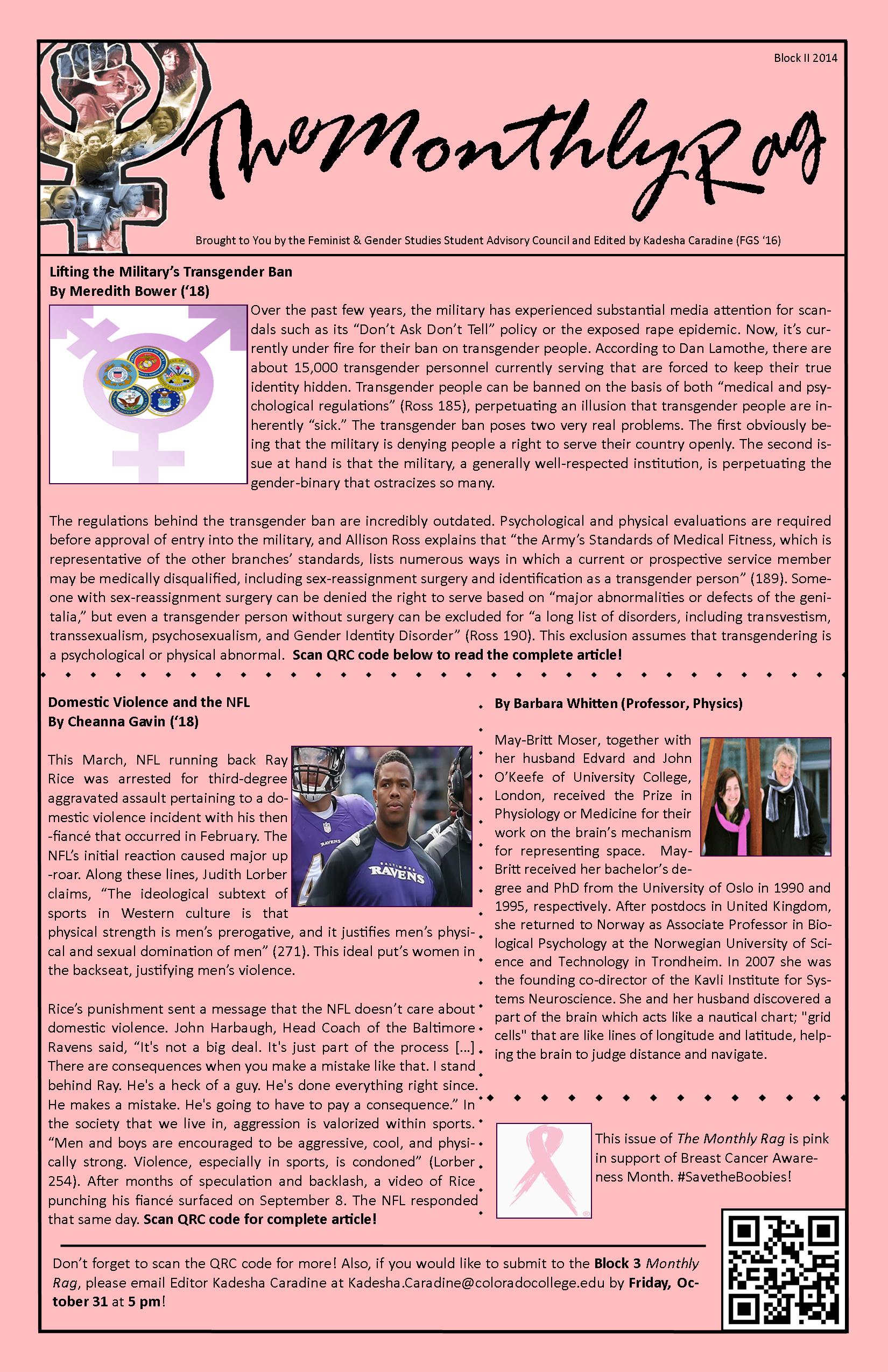Ray Rice


Domestic Violence and the NFL
By Cheanna Gavin (’18)
In March, NFL running back Ray Rice was arrested for third-degree aggravated assault pertaining to a domestic violence incident with his then-fiancé that occurred in February. The NFL’s initial reaction to the domestic violence case caused major up-roar. Along these lines, Judith Lorber claims, “The ideological subtext of sports in Western culture is that physical strength is men’s prerogative, and it justifies men’s physical and sexual domination of men” (271). This ideal put’s women in the backseat, and makes for justification of men’s violence.
The punishment that Ray Rice received sent a message that the NFL doesn’t care about domestic violence. John Harbaugh, Head Coach of the Baltimore Ravens, said, “It’s not a big deal. It’s just part of the process […] There are consequences when you make a mistake like that. I stand behind Ray. He’s a heck of a guy. He’s done everything right since. He makes a mistake. He’s going to have to pay a consequence.” In the society that we live in, aggression is valorized within sports. “Men and boys are encouraged to be aggressive, cool, and physically strong. Violence, especially in sports, is condoned” (Lorber 254). After months of speculation and backlash, a video of Rice punching his fiancé surfaced on September 8. The NFL responded that same day. Rice’s contract with the Baltimore Ravens was terminated, and he was suspended from the NFL indefinitely. Although the punishment for Rice changed, the responses have not. The fact that it took a video of a man punching his wife to bring the severity of the issue into perspective is a huge problem. Both young boys and girls get the message that this is not a big deal. Young boys see that they won’t be severely punished without visual proof, and young girls see that there voice alone will not be heard.
From a feminist point of view, there should be no praise for the recent actions taken by the NFL. “Feminist studies of men blame sports […] and other places where men bond for encouraging physical and sexual violence and misogyny” (Lorber 273). The NFL as a whole has made a culture that benefits from violence on and off the field. Feminism views the Ray Rice incident as one aspect of a much larger problem. For example, David J. Leonard and Monica J. Casper write in “Rotten to the Core: The NFL and Domestic Violence,” “Ray Rice might be our current poster child, a symbol that allows the NFL to distance itself from domestic violence. But this is about a culture that, again and again, shows us that women’s lives, and especially Black women’s lives, don’t matter.” This brings into perspective the larger problem of domestic violence and the culture that allows it to flourish.
According to the Redstockings, women “are considered inferior beings […] Our humanity is denied. Our prescribed behavior is enforced by the threat of physical violence” (130). The Rice spectacle has only reinforced this statement by sending the message that domestic violence is “no big deal.” In order for change to be made on a grand scale, the encouragement of aggression and the violent culture of sports must change. This ordeal has brought the issue of domestic violence back into the eye of the public, and has allowed for changes, on a minor scale, to begin to be made. After the backlash that the NFL received, they have changed their domestic violence penalties. For future domestic violence incidents, there will be longer suspensions. Although this does not solve the problem, it is a step in the right direction.



